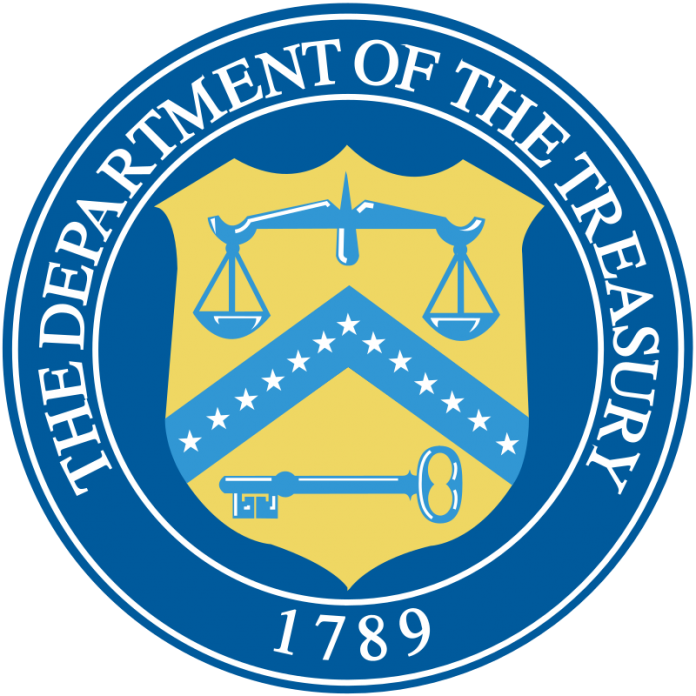A bipartisan bill would give the secretary of the treasury unilateral power to classify any charity as a terrorist-supporting organization, automatically stripping away its nonprofit status. The bill, H.R. 6408, already passed the House of Representatives in November, and a companion bill, S. 4136, was introduced to the Senate by Sens. John Cornyn (R–Texas) and Angus King (I–Maine) last week.
In theory, the bill is a measure to fight terrorism financing. At least, that’s what sponsor Rep. David Kustoff (R–Tenn.) claimed. “I urge the swift passage of this legislation that will significantly diminish the ability of Hamas and other terrorist groups to finance their operations and carry out future attacks,” he said in a November statement.
Financing terrorism is already very illegal. Anyone who gives money, goods, or services to a U.S.-designated terrorist organization can be charged with a felony under the Antiterrorism Act and the International Emergency Economic Powers Act. And those terrorist organizations are already banned from claiming tax-exempt status under section 501(c)(3) of the tax code. Nine charities have been shut down since 2001 under the law.
The new bill would allow the feds to shut down a charity without an official terrorism designation. It creates a new label called “terrorist-supporting organization” that the secretary of the treasury could slap onto nonprofits, removing their tax exempt status within 90 days. Only the secretary of the treasury could cancel that designation.
In other words, the bill’s authors believe that some charities are too dangerous to give tax exemptions to, but not dangerous enough to take to court. Although the label is supposed to apply to supporters of designated terrorist groups, nothing in the law prevents the Department of the Treasury from shutting down any 501(c)(3) nonprofit, from the Red Cross to the Reason Foundation.
“Some observers seem to assume that it is merely about virtue signaling and grandstanding, but careful reading of the text of HR 6408 strongly suggests something much more serious,” wrote Lara Friedman in her Foundation for Middle East Peace newsletter. “This would be: enabling a new category of legal harassment of NGOs [non-government organizations], focused in the first instance on those that engage with Palestinians or on Palestinian issues, but also enabling attacks on NGOs working in any sector and on any issues.”
Supporters of the bill do seem to have pro-Palestinian student organizations in mind.
“Students for Justice in Palestine rallies are not spontaneous expressions of student dissent,” said Jonathan Schanzer, senior vice president of the neoconservative Foundation for Defense of Democracies, at a November hearing of the House Ways and Means Committee. He accused students of taking “guidance and support” from American Muslims in Palestine, a 501(c)(3) charity, which bears a “striking resemblance to the Hamas charities that were dismantled here more than a decade ago.”
Those vague, indirect connections have not been nearly enough to punish Students for Justice in Palestine legally. That month, Florida Gov. Ron DeSantis accused Students for Justice in Palestine of supporting Hamas and ordered its Florida chapter shut down. As soon as Florida authorities faced a lawsuit, they quickly walked back DeSantis’ order.
Under the proposed bill, murky innuendo could be enough to target pro-Palestinian groups. But it likely wouldn’t stop there. After all, during the Obama administration, the IRS put aggressive extra scrutiny on nonprofit groups with “Tea Party” or “patriot” in their names. And under the Biden administration, the FBI issued a memo on the potential terrorist threat that right-wing Catholics pose.
The Charity and Security Network, a coalition of charities that operate in conflict zones, warned that its own members could be hindered from helping the neediest people in the world.
“Charitable organizations, especially those who work in settings where designated terrorist groups operate, already undergo strict internal due diligence and risk mitigation measures and…face extra scrutiny by the U.S. government, the financial sector, and all actors necessary to operate and conduct financial transactions in such complex settings,” the network declared in November. “This legislation presents dangerous potential as a weapon to be used against civil society in the context of Gaza and beyond.”
Originally published by Reason Foundation. Republished with permission.
For more from Budget & Tax News.
For more public policy from The Heartland Institute.











